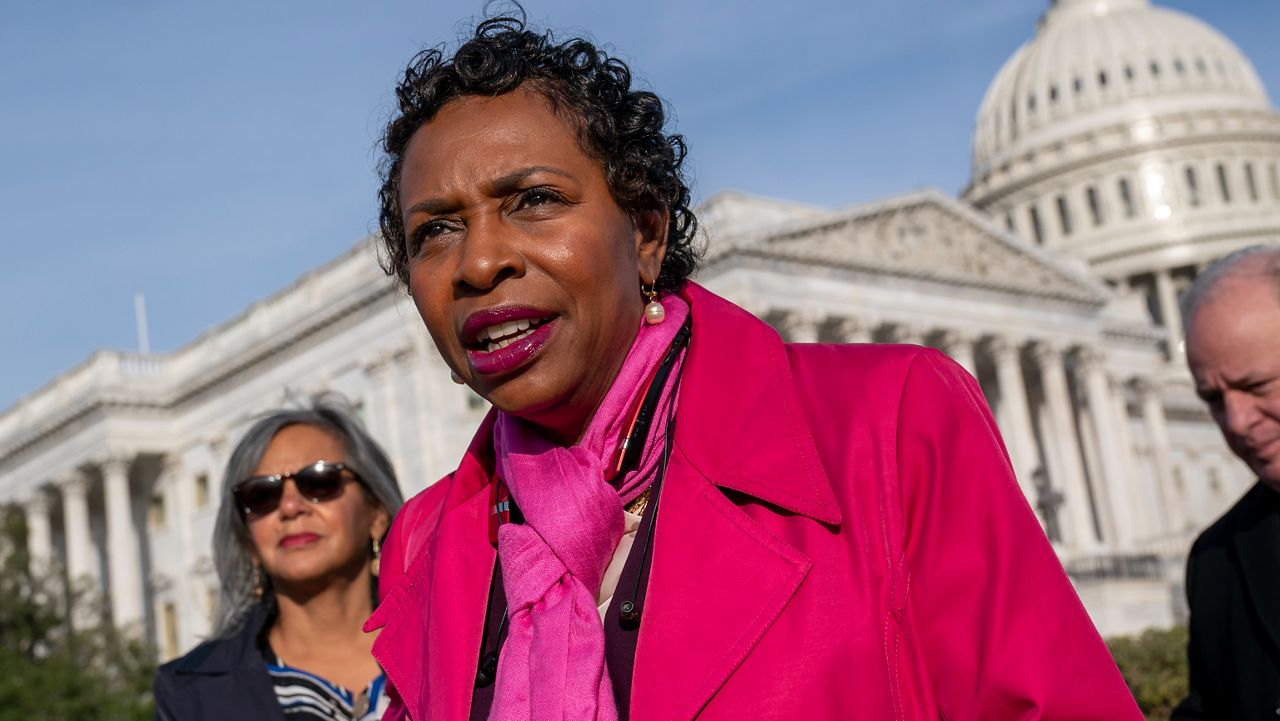By nearly every measure, the U.S. has a worsening affordable housing crisis.
According to a report from the Urban Institute, an economic and social policy think tank, there is a shortage of 7.3 million available and affordable rental homes for renters with extremely low incomes in the U.S., up 8% percent from in 2019. The group’s report also says there are only 7 million affordable housing units for 11 million households with extremely low-income households, but 3.3 million are occupied by households with higher incomes.
The problem is especially acute in the nation’s cities, where space is scarce and the price of land is high.
One California congressman is proposing a novel solution: A federal law that would ban localities from requiring developers to set aside some of that precious urban space for parking.
“I'm a big believer that we're gonna solve both our housing and our climate crisis, we've got to focus on building more affordable housing and creating more dense communities, particularly in downtown areas,” said Rep. Robert Garcia in an interview with Spectrum News. “As Mayor of Long Beach, we up-zoned a lot of the city and we reformed our parking laws.”
Last year, California Gov. Gavin Newsom signed a bill to remove parking minimum requirements in September 2022 for new housing developments and businesses near transit hubs.
Garcia’s bill, the “People Over Parking Act,” aims to do something similar – the measure would strike down local zoning rules that require a minimum number of parking spaces for affordable residential, retail, industrial and commercial construction, giving developers the right to determine how much parking is actually needed.
“We are increasing the cost of housing, because we're telling developers you have to build x-amount of parking spaces. And remember, this is not saying that we're not going to have parking spaces, we're just removing the mandate of how many folks need it.”
Garcia introduced the bill alongside Reps. Greg Casar, D-Texas, Earl Blumenauer, D-Ore., and Seth moulton, D-Mass.
A 2020 study showed Seattle saw more affordable housing options emerge after parking minimums were dropped back in 2012. Lisa Benton-Short, a geography professor at the George Washington University who studies urban development says a federal law removing parking minimums is a long time coming.
“One of the things that has largely been absent in our national conversation around climate change and moving towards more sustainable communities, has been the role of the federal government, it's largely left these decisions up to localities, to states to cities,” Benton-Short explained.
“I think that maybe this is an important inflection point where having the federal government say that because there are so many different benefits associated with these kinds of decisions, that we should make it easier for developers to make these decisions based on very context specific types of development they're doing,” she added.
The bill is likely to face opposition on the grounds that it would strip cities and towns of fundamental land use decisions that have long been the responsibility of local governments. It also could face opposition from suburban lawmakers whose constituents frequently drive into cities.
Another concern about reducing parking minimums is the social inequity aspect.
“Developers need to be very sensitive when they're looking at ways that they're designing their residential developments, their mixed use developments, the kind of the range of people that will be living and using these areas,” Benton-Short said. “Maybe perhaps trying to preserve parking for lower-income neighbors are residents of those areas, simply because they may have jobs that require longer commutes that you can't do on public transportation.
“We want to make sure that we're sensitive to those issues before we completely eliminate parking,” she said, adding that the bill has the potential to spur conversations on investing more heavily in public transit.
“A bill like this, get cities and planners and developers talking again, about to what degree do we want the car to determine a lot of how we plan land use and plan residential development.”
Garcia’s measure has been endorsed by several advocacy groups, including the Greenbelt Alliance, Smart Growth America, and the Bay Area Council.
"Requiring expensive parking construction near transit is a mistake,” said Jim Wunderman, president and CEO of the Bay Area Council. “Studies routinely show that parking minimums are not set scientifically and often lead to vast, unused parking facilities. These requirements make housing more expensive, take away space for businesses, and detract from the walkable desirability that make main streets such an important part of our economy.”
“These requirements can add up to $80,000 to the cost of a home, keeping rent unaffordable and homeownership out of reach,” Wunderman added.
As a former mayor, Garcia says he believes “states and localities have failed on the issue,” and has exacerbated the housing crisis, both in California and across the country.
“These are human beings that need our support,” Garcia said. “We’ve got to lower the cost of housing. The best way to do that is to take away forced parking minimums. It’s been studied across the country. It's the right approach.”









